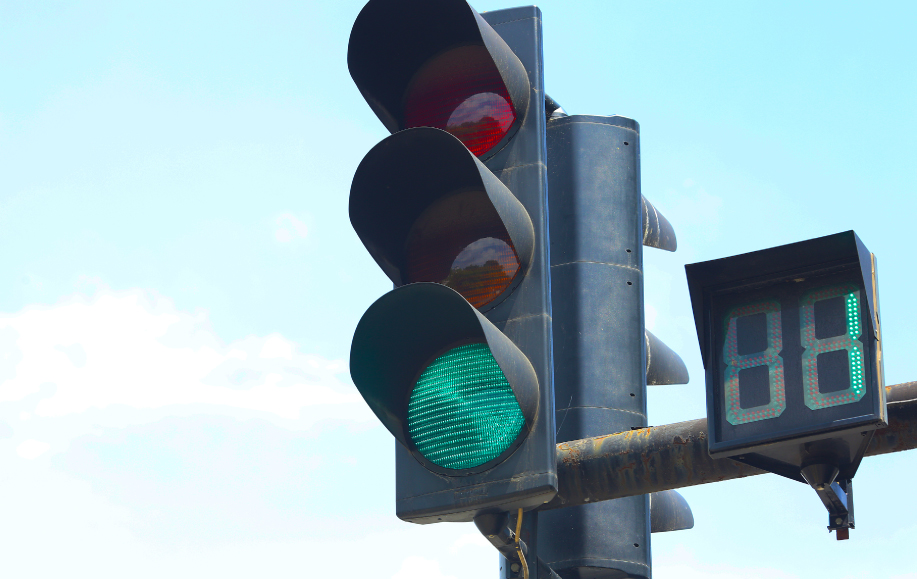One of the first potential defenses to an OVI stop is: Was the reason for the stop lawful?
In order to pull a car over, a police officer must have “reasonable suspicion that a traffic violation has occurred or was occurring.” Even if the traffic violation is very minor (i.e., failure to use a turn signal when changing lanes), the stop is considered lawful even where the officer had some ulterior motive for making the stop.
But there must be a traffic violation. Where, as in this case, there was no valid reason for the stop (no traffic violation) – the entire OVI stop may be thrown out of court.
Driver Delays at a Green Light
The defendant was driving on a road near a shopping mall in an area with multiple businesses. An Ohio State Highway Patrol officer stopped next to her at a red light. The trooper paused for a moment then continued through the intersection. The defendant did not go when the light turned green and sat at the light for approximately eleven seconds after the signal turned green.
The trooper started to do a U-turn and at the same time, the defendant starting moving. The trooper then pulled the car over. There were two other females in the car. The defendant explained that she failed to go when the light was green because she was talking with her passengers.
However, the trooper stated he detected an odor of alcohol. In response to questioning, the defendant admitted to drinking one martini and one glass of wine with dinner – and that the wine was about twenty minutes prior. The defendant did not slur her speech, she was polite, compliant, did not sway and complied with all field sobriety tests.
The defendant took a breath test and blew a 0.111.
The defendant filed a motion to suppress, arguing that the trooper did not have reasonable suspicion to pull her over.
Delaying at a Green Light is Not a “Parking” Violation
Here, the trooper testified that the basis for the stop was illegal parking on a highway. That statute (R.C. 4511.66(A)) states:
“Upon any highway . . . no person shall stop, park, or leave standing any vehicle, whether attended or unattended, upon the paved or main traveled part of the highway if it is practicable to stop, park, or so leave such vehicle off the paved or main traveled part of said highway.”
Here, the driver was lawfully stopped at a stop light. Thus, she was not “stopped” on a highway. Rather she was “stopped” at a red light as required by law. Further, before the officer made a U-turn to pull her over, she had begun moving through the intersection. The officer couldn’t have thought her car was “parked” on the highway.
Just because she delayed in moving after the signal turned red does not mean she committed a crime. After all, “a driver may not rely solely upon the fact that the light has turned green to proceed into an intersection.” Money v. Cincinnati Street Ry. Co., 86 Ohio App. 61, 67-68,89 N.E.2d 683(1st Dist. 1949). Rather, the driver still must check that the intersection is clear before the driver proceeds.
Because delaying at a green light does not violate violate the prohibition against parking on the highway, the stop was unreasonable. Thus, the OVI was thrown out.



